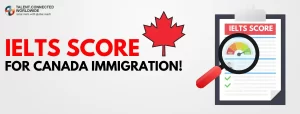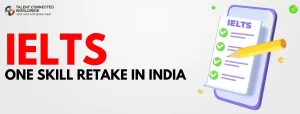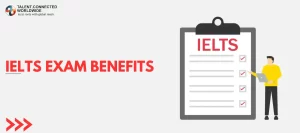
On 10th August, 2023, the Immigration, Refugees and Citizenship Canada has made it easier for students applying via the Canada Student Direct Stream. There are four new language tests for students to choose from and prove their language proficiency to immigrate to Canada. IRCC approved these language tests on 10 Aug, and these will ultimately offer students a greater choice when it comes to choosing the appropriate test.
New Language Tests for Students
The names of new language tests for students are:-
- CAEL- Canadian Academic English Language
- CELPIP- Canadian English Language Proficiency Index Program
- TOEFL iBT- Test of English as a Foreign Language Internet Based Test
- PTE- Pearson Test of English Academic
In the midst of new language tests, let’s not forget about IELTS and TEF.
Download Free Immigration and PR Guide PDF
Minimum Score Requirements In Each Language Test
The Students Direct Stream requires the test scores to not be older than 2 years and these tests must have been taken in-person. Online tests are not recognized. Let’s see what are the score requirements for each language test.
- In case you are going for the CAEL Test, you must score at least 60.
- Similarly, PTE also requires a score of either 60 or above.
- CELPIP needs that candidate to score either a minimum CLB of 7 or higher.
- For TOEFL iBT, you need to score 83 or above.
- If you are opting for IELTS Academic, you need a minimum score of 6 in the overall test.
- Whereas IELTS General requires the candidate to score a minimum CLB of 7 or higher than that in each section of the test.
IRCC Approves Language Testing Organizations Based on…?
IRCC has published the criterias that it uses to approve a language testing organization. Earlier, there were no such criterias and hence, language testing organizations did not know whether they qualified for approval or not.
These criterias are:-
- Reliability- Reliability means that the test needs to produce a similar score for candidates whose language proficiency is the same. All the different versions of a test need to be at the same difficulty level every time the test is taken.
- Availability- The testing organization should be available to test takers in all parts of Canada as well as abroad. Abroad includes the places where there’s enough demand for third-party language testing.
- Expertise- The test should be appropriate and be able to evaluate the four skill areas of the candidate, at all levels from basic to high proficiency.
- Integrity/Security- The testing agency needs to meet the security standards related to the logistics of preparing test sites, test writing and marketing, registering candidates, sending out results, etc. Anti-fraud mechanisms should also be in place.
Don’t forget to fill the form below to get some insights and advice from our experts!






